
Forensic Psychiatry Services and Training Program
For further information or to schedule a consultation, contact us!
- Email: [email protected]
- Phone: 303.724.0284
- Administrator: Lisa Wierda
For expert consultation, email us or complete our online inquiry form.
Faculty
Dr. Richard Martinez is the Robert D. Miller Professor of Forensic Psychiatry at the University of Colorado Anschutz School of Medicine. Dr. Martinez was born and raised in New Orleans, attended Tulane University for undergraduate studies, completed medical school at LSU in New Orleans, and received his training in general psychiatry and a Masters in Humanities
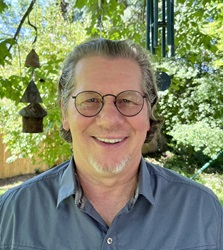
degree at the University of Colorado. He lived in Boston for two years where he completed fellowships in bioethics and professional ethics at Harvard Medical School and the Edmond J. Safra Center for Professional Ethics at Harvard University.
Dr. Martinez completed his forensic psychiatry fellowship under Dr. Robert D. Miller and is certified by the American Board of Psychiatry and Neurology in forensic psychiatry and general psychiatry. He is former president of the Association of Directors of Forensic Psychiatry Fellowship Programs, former councilor and vice-president of the American Academy of Psychiatry and Law, a member of the Group for the Advancement of Psychiatry’s Law and Psychiatry Committee, and chair of the APA’s Committee on Psychiatry and Law. He teaches forensic psychiatry and professional ethics, and lectures on various topics in forensic psychiatry and ethics across the United States.
In 2000, Dr. Martinez received the University of Colorado Health Sciences Center Total Learning Environment Education Award for innovations in teaching and education. In 2009, he was designated as the Robert D. Miller Professor of Forensic Psychiatry. In 2013, he received the “Best Teacher in a Fellowship Program” from the American Academy of Psychiatry and Law. Dr. Martinez is a Distinguished Life Fellow of the American Psychiatric Association, and recipient of the Colorado Psychiatry Society “Outstanding Achievement Award” in psychiatry and ethics. In 2022, Dr. Martinez was presented with the Seymour Pollack Award from the American Academy of Psychiatry and Law “in recognition of distinguished contributions to the teaching and educational functions of forensic psychiatry.” He has written on numerous topics in professional ethics, law and psychiatry, end of life care, informed consent and boundaries in the patient-health professional relationship, and a book on ethics in forensic practice. He consults as a forensic psychiatrist in civil and criminal law including specialized interests in criminal responsibility and the law, maternal depression and infanticide, professional misconduct and fitness for duty, malpractice and suicide risk assessment, and a range of other areas involving the intersection of law and mental health.

Darren Lish, MD, DFAPA, is an Associate Professor of Clinical Psychiatry at the University of Colorado School of Medicine. In addition, he serves as Medical Director of the Forensic Community Based Services program which oversees the treatment of individuals who were found Not Guilty by Reason of Insanity (NGRI) and released to community supervision. He also runs two jail-based competency restoration programs in Colorado and California. Dr. Lish completed medical school and residency training in psychiatry at Yale University School of Medicine in New Haven, Connecticut. He completed additional training in forensic psychiatry at the University of Colorado and is board-certified in both general and forensic psychiatry. Dr. Lish previously served as the Chief of Psychiatry for the Colorado Department of Corrections. He has been qualified as an expert witness and has testified to issues involving a variety of mental disorders, sanity, competence to stand trial, dangerousness, mental health treatment of inmates, psychiatric malpractice, testamentary capacity, and wrongful death in correctional institutions. He performs private criminal and civil forensic evaluations, as well as court-ordered competency, sanity, and release evaluations for the Office of Civil and Forensic Mental Health. He is passionate about teaching and has presented on numerous psychiatric topics to a variety of groups, including medical students, psychiatric residents, law students, social workers, and correctional mental health providers.

Dr. Ahmad Adi, MD, MPH currently serves as an Assistant Professor at the University of Colorado School of Medicine, Anschutz Medical Campus, Aurora, CO. In these roles, Dr. Adi serves as a faculty member in general and forensic psychiatry where he provides clinical services, forensic evaluation, and trainee supervision. Dr. Adi’s forensic expertise include evaluations related to criminal law, civil law, as well as immigration law. Dr. Adi’s research interests include forensic evaluations in immigration courts and mental health in humanitarian disasters, and he provides trainings on conducting these evaluations locally and nationally. Dr. Adi provides psychiatric services and forensic evaluations in English and Arabic, with a focus on cultural psychiatric elements that influence forensic evaluations.

Dr. Alyssa Tran is a dynamic forensic psychiatrist with a fervent dedication to enhancing the mental health of first responders, advancing forensic psychiatry, and advocating for those affected by trauma. A native of Denver, Colorado, Dr. Tran's journey has culminated in opening a private practice and her role as a faculty member at the University of Colorado, Department of Psychiatry.
Her academic journey commenced with a Bachelor of Science in Psychology from the University of Colorado at Denver in 2012, followed by the attainment of her Doctor of Osteopathic Medicine (D.O.) from the Rocky Vista College of Osteopathic Medicine in Parker, Colorado in 2016. Driven by an innate passion for medicine and mental well-being, she delved into the realm of psychiatry following her medical studies, where her dedication only flourished.
Dr. Tran's exceptional talent and unwavering dedication were evident during her residency training at the University of Colorado, where she not only thrived but also completed the prestigious psychotherapy scholars track to gain experience in psychodynamic therapy. Subsequently, she further honed her expertise through a forensic psychiatry fellowship at the same institution, earning board certification in both general and forensic psychiatry.
Dr. Tran's multifaceted contributions extend beyond academia, as evidenced by her commitment to addressing the scarcity of culturally competent psychiatric care providers for first responders in Colorado through the establishment of a private practice during residency. Her involvement as a consultant to various police psychology groups, including Nicoletti-Flater Associates, underscores her dedication to supporting the mental wellbeing of first responders.
Dr. Tran undertakes a diverse range of forensic psychiatry evaluations, including court-ordered evaluations for the State of Colorado Office of Civil and Forensic Mental Health, independent medical evaluations, disability evaluations for the Fire & Police Pension Association, and workers' compensation evaluations for first responders. Dr. Tran's prior involvement in the integrated care setting, an obsessive-compulsive disorder clinic, and the Mesa County Competency Enhancement Program highlight her diverse skill set and commitment to serving her community.
In her practice, Dr. Tran embodies a compassionate, open-minded, and collaborative approach to psychiatric assessments, treatment, and forensic evaluations, tailored to meet the unique needs of each individual. She endeavors to cultivate a safe, comfortable, and trauma-sensitive environment for evaluation and treatment, exemplifying her unwavering commitment to promoting mental wellness and serving those in need. Dr. Tran is LGBTQ+ affirming and works with people from diverse backgrounds.
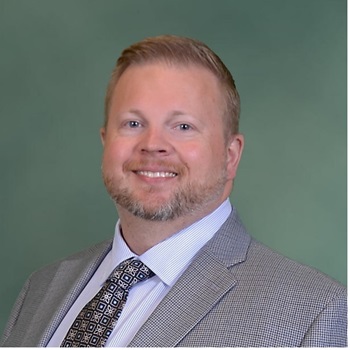
Gregory Singleton, MD, DFAPA, is a board-certified psychiatrist and Senior Instructor in Clinical Psychiatry at the University of Colorado School of Medicine. Dr. Singleton completed medical school and residency in general psychiatry at Indiana University School of Medicine. He completed subspecialty training in forensic psychiatry at the University of Colorado School of Medicine. He has provided expert psychiatric services in both forensic and civil cases.
Dr. Singleton has extensive clinical experience in community mental health, emergency and inpatient psychiatry, assertive community treatment, and private practice. He served as Chief of Emergency Psychiatry, Assistant Medical Director, and eventually Chief Medical Officer of Indiana’s largest community mental health center. He is an expert consultant to the State of Indiana as a member of its Indiana Public Retirement System Mental Health Disability Review Panel, which reviews disability cases of Indiana’s firefighters and police officers.
Dr. Singleton has served in various leadership roles at the local, state, and national level. He was elected by his peers as their American Psychiatric Association (APA) Assembly Representative. Dr. Singleton was a member of the Indiana Psychiatric Society Council and co-chair of its Continuing Education Committee, and he was appointed to the board of the Indiana Medicaid Therapeutics Committee. He has also been a member of or led medical advisory, clinical services oversight, policy and procedure, medical staff oversight, and medical executive committees.
Dr. Singleton has a passion for teaching. As an Assistant Professor of Clinical Psychiatry at Indiana University School of Medicine, he served as director of the psychiatry residents’ Emergency Psychiatry Didactics and the medical student psychiatry clerkship, in additional to providing direct clinical supervision. Dr. Singleton has given presentations on various topics in psychiatry, including presenting at the APA’s annual meeting in 2019.
In 2021, the APA awarded Dr. Singleton as a Distinguished Fellow of the American Psychiatric Association, which is “the highest membership honor the APA bestows.”
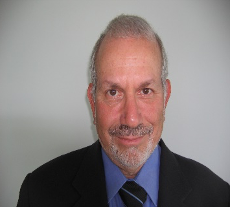
Jeffrey L. Metzner received his M.D. from the University of Maryland Medical School in 1975 and completed his psychiatric residency at the University of Colorado’s Department of Psychiatry during 1979. He is a Clinical Professor Emeritus of Psychiatry at the University of Colorado School of Medicine in Denver, Colorado, where he is also Associate Director of the forensic fellowship program.
Dr. Metzner has written extensively on the psychiatric care of prison populations. He has provided consultation to judges, special masters, monitors, state departments of corrections, city and county jails, U.S. Department of Justice, the National Prison Project, Homeland Security and others involved in the field of correctional psychiatry in 35 states. Dr. Metzner was a member (2006) of the Institute of Medicine Committee on Ethical Considerations for Revisions to DHHS Regulations for Protection of Prisoners Involved in Research. He was part of the APA work groups that produced the first and third editions of the guidelines for psychiatric services in correctional facilities. Dr. Metzner is one of three editors of The Oxford Textbook of Correctional Psychiatry (May 2015). Regarding the DSM-5 TR, Dr. Metzner was a member of the Cross-Cutting Forensic Review Group, which reviewed every chapter in the DSM-5 TR from a forensic perspective.
Dr. Metzner remains active at the national level in the American Psychiatric Association (APA), the American Academy of Psychiatry and the Law (AAPL) and the American Board of Psychiatry and Neurology, Inc. (ABPN). He is a former president of AAPL. He is a former chair of the American Psychiatric Association’s Council on Psychiatry and Law and a former chair of the APA’s Committee on Judicial Action. Dr. Metzner is a former chair of the ABPN’s committee that writes the questions for the forensic subspecialty board examination. He has been a recipient of the Isaac Ray Award and Guttmacher Award, which are both awarded by the APA and the AAPL, and the B. Jaye Anno Award of Excellence in Communication, awarded by the National Commission on Correctional Health Care.

Dr. Teresa Mayer completed her Child and Adolescent Psychiatry fellowship at Stanford University in 2001 and has treated adults and children in residential, inpatient, and outpatient facilities. Dr. Mayer has been serving as psychiatric medical director for Colorado’s Department of Youth Services correctional facilities since 2017. She completed her forensic psychiatry training in June 2022 and joined the clinical faculty at the university part-time while continuing her work in the juvenile justice system. Dr. Mayer’s passion is in assessing adolescents and young adults, focusing on the impact of trauma and how it affects brain development, behavior, and psychiatric illness.
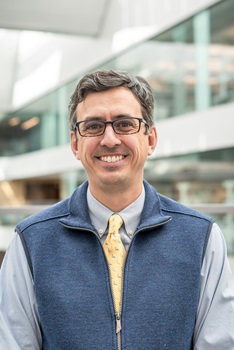 Scott Simpson, MD, MPH, is Professor of Psychiatry and a national expert in emergency psychiatry and suicide prevention. Dr. Simpson is the Director of the Division of Community, Population, and Public Mental Health in the University of Colorado School of Medicine Department of Psychiatry. Dr. Simpson is a practicing emergency and consulting psychiatrist with a passion for improving the quality of care that crisis systems can offer to underserved populations. He frequently treats patients with high-risk psychiatric presentations—including suicidal ideation, violent ideation, intoxication, psychosis, and substance use disorders. Dr. Simpson has consulted with dozens of health systems, schools of medicine, and civic partners on improving the quality and efficiency of care for patients experiencing behavioral emergencies. He also provides expert consultation on cases related to suicide, self-harm, violence, psychiatric admission and discharge, prehospital care, and medication management for lawyers and healthcare leaders across the country. As a consultant, Dr. Simpson interprets the latest scientific literature within the context of the standard of care in community settings and practical limitations of real-world practice.
Scott Simpson, MD, MPH, is Professor of Psychiatry and a national expert in emergency psychiatry and suicide prevention. Dr. Simpson is the Director of the Division of Community, Population, and Public Mental Health in the University of Colorado School of Medicine Department of Psychiatry. Dr. Simpson is a practicing emergency and consulting psychiatrist with a passion for improving the quality of care that crisis systems can offer to underserved populations. He frequently treats patients with high-risk psychiatric presentations—including suicidal ideation, violent ideation, intoxication, psychosis, and substance use disorders. Dr. Simpson has consulted with dozens of health systems, schools of medicine, and civic partners on improving the quality and efficiency of care for patients experiencing behavioral emergencies. He also provides expert consultation on cases related to suicide, self-harm, violence, psychiatric admission and discharge, prehospital care, and medication management for lawyers and healthcare leaders across the country. As a consultant, Dr. Simpson interprets the latest scientific literature within the context of the standard of care in community settings and practical limitations of real-world practice.
 Dr. Alexandra (Alex) Lynch was born and raised in Colorado. As a Coloradan, she is an avid hiker, snowshoer, and yogi--a true lover of the outdoors. She attended undergraduate at Regis University in Denver, where she received a Bachelor of Science in biology and completed the Honors Program, strengthening her love for the humanities. She then received her Doctor of Medicine (M.D.) from the Medical College of Wisconsin in Milwaukee.
Dr. Alexandra (Alex) Lynch was born and raised in Colorado. As a Coloradan, she is an avid hiker, snowshoer, and yogi--a true lover of the outdoors. She attended undergraduate at Regis University in Denver, where she received a Bachelor of Science in biology and completed the Honors Program, strengthening her love for the humanities. She then received her Doctor of Medicine (M.D.) from the Medical College of Wisconsin in Milwaukee.
She completed general psychiatry residency at the George Washington University in Washington, D.C., where she received extensive education, training, and supervision in psychodynamic psychotherapy. She learned she is well-suited to psychodynamic work given her innate ability to connect meaningfully with others. Next, she completed child and adolescent psychiatry fellowship at the University of Maryland/Sheppard Pratt in Baltimore, where she received extensive training and supervision in trauma-focused cognitive behavioral therapy. She discovered a particular knack for connecting with adolescents and young adults.
Finally, she returned to Colorado to complete forensic psychiatry fellowship at the University of Colorado in Aurora. Here, she learned that her thoroughness, humanitarian nature, thoughtfulness, and again, ability to connect with others, are well-suited to forensic work. Dr. Lynch is a skilled diagnostician, psychopharmacologist, and therapist. She is warm, empathetic, and curious, with adeptly timed humor.
Affiliated Faculty
 Steven Berkowitz, MD is a Professor of Psychiatry and Pediatrics at the University of Colorado School of Medicine. He is a graduate of the Hahnemann College of Medicine (Now Drexel) in Philadelphia. He did his General and Child and Adolescent Psychiatry Training at the Yale School of Medicine, where he stayed on the faculty at the Yale Child Study Center for 13 years and was the deputy director of the National Center for Children Exposed to Violence. While there, he was the lead developer of the Child and Family Traumatic Stress Intervention, the first secondary prevention model to be shown to decrease the development of PTSD in children and youth.
Steven Berkowitz, MD is a Professor of Psychiatry and Pediatrics at the University of Colorado School of Medicine. He is a graduate of the Hahnemann College of Medicine (Now Drexel) in Philadelphia. He did his General and Child and Adolescent Psychiatry Training at the Yale School of Medicine, where he stayed on the faculty at the Yale Child Study Center for 13 years and was the deputy director of the National Center for Children Exposed to Violence. While there, he was the lead developer of the Child and Family Traumatic Stress Intervention, the first secondary prevention model to be shown to decrease the development of PTSD in children and youth.
He moved to the University of Pennsylvania, Perelman School of Medicine in 2009, where he started the Penn Center for Youth and Family Trauma Response and Recovery. As a traumatologist, he was in involved in legal issues, however after being interviewed at the local Philadelphia NPR station, he was asked by a law firm to evaluate several victims of Clergy abuse. Since then he has evaluated and provided testimony in scores of cases of traumatized children (often abuse related) and of adults traumatized as children. He has also been involved in cases that have resulting in policy changes and legal precedents. He has published several articles related to trauma and medical legal issues
He arrived at the University of Colorado in September of 2018 to establish the Stress Trauma, Adversity Research and Treatment Center (START). In addition, he has directed the Department of Psychiatry’s COVID response since March 2020.

Dr. Allen hails from the Carolina Low Country and grew up on the Marine bases at Parris Island and Quantico. He attended Florida State University, received his medical degree from the Medical University of South Carolina and trained in psychiatry at the Institute of Living where he served as chief resident. He went on to join on the faculty of Cornell and later New York University School of Medicine. While at NYU, he developed the model Comprehensive Psychiatric Emergency Program at Bellevue Hospital, mentioned in New York Magazine’s “Best Hospitals in New York.” Currently, he is a professor in the Departments of Psychiatry and Emergency Medicine and a strategic advisor to the Brain and Behavior Innovation Center at the University of Colorado School of Medicine. He practices at the Johnson Depression Center, part of the National Network of Depression Centers. He is recognized as a national or international authority in several areas including suicide care, agitation, mood disorders and psychiatric emergency services.
In the field of suicide care, he has been a principal investigator for four large studies and a statewide implementation project with published data including 9891 suicidal individuals. These include (1) the NIMH Systematic Treatment Enhancement Program for Bipolar Disorder (STEP-BD), (2) the Psychiatric Emergency Research Collaboration, (3) the NIMH Emergency Department Safety Assessment and Follow-up Evaluation study (ED SAFE, the largest suicide intervention trial ever conducted), (4) PRISM, a study of suicide screening in military primary care settings and (5) the Colorado state implementation of telephonic outreach for suicidal patients in EDs statewide. He is currently a principal investigator for a randomized controlled trial of a telephone application for suicide prevention. He is an author of US or world guidelines for the management of problems in these and several other areas. As a grantee of the Colorado Trust, he led the community organizing process that was the basis for legislation creating the Colorado Suicide Prevention Commision where he served as commissioner. He has contributed to several products on the Suicide Prevention Resource Center Repository. As an outgrowth of the ED SAFE study and while medical director of Rocky Mountain Crisis Partners, he helped to develop the Hospital Follow Up Program for the state of Colorado which came to be viewed as the largest and best of its kind in the country. He currently serves as co-chair of the Zero Suicide Committee for the 14 hospitals of the UCHealth System and serves on the Steering Committee for the 988 National Suicide and Crisis Lifeline and the Scientific Advisory Board of the American Foundation for Suicide Prevention.
In the area of agitation, he received a NARSAD Independent Investigator award for the study of nicotine and agitation. He was a consultant and principal investigator from the inception of the inhaled loxapine program for agitation through FDA approval in the US and post-marketing studies in Europe. He was the lead expert for the Expert Consensus Guideline for the Management of Behavioral Emergencies and a contributor to international guidelines.
Dr. Allen is also viewed as an expert in mood disorders. He was a principal investigator for STEP-BD, the largest study of bipolar disorder ever conducted. He developed and validated the Clinical Global Impression Scale for Schizoaffective Disorder used in the paliperidone registration trials. He has been a principal investigator for pharmaceutical studies in many disease states and has led investigator training in 17 languages at more than 60 investigator meetings worldwide.
In the emergency psychiatry arena, he was a member the NIH Emergency Medicine Roundtable, served as president of the American Association and vice president of the International Association for Emergency Psychiatry, chair of the American Psychiatric Association Task Force on Psychiatric Emergency Services and as a member of an American College of Emergency Physicians clinical policy subcommittee.
He served as the inaugural chair of the Colorado Medicaid Pharmacy and Therapeutics Committee. He has also serverd as a consultant to the US Department of Justice Civil Rights Division, the Centers for Medicare and Medicaid Services, the Joint Commission, the Substance Abuse and Mental Health Services Administration and the National Institute of Mental Health.
Drr. Allen has been board certified in psychiatry and addictions. He is the author or editor of three books and a former editor of Emergency Psychiatry and General Hospital Psychiatry. He has over 100 original articles and his work has been consistently cited 250 times a year. He has been recognized by the Colorado Psychiatric Society with their Outstanding Achievement Award and by the American Psychiatric Association as a Distinguished Life Fellow.
Consulting Faculty

B. Thomas Gray, PhD, ABPP holds doctoral degrees in Counseling Psychology from Texas A&M University, and in Anthropology from Case Western Reserve University. He is the Director of Training for the The Office of Civil and Forensic Mental Health, Court Services Department. In that role, he supervises and conducts forensic evaluations, primarily of competency and criminal responsibility, and provides consultation and supervisory oversight for the department’s evaluators, including an active postdoctoral fellowship program. He also runs a small private practice providing guardianship and other forensic psychological evaluations, as well as consultation to law enforcement agencies.
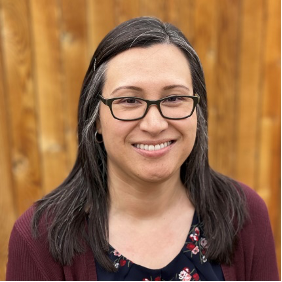
Caitlin Vigil, MD is a Senior Instructor in the Department of Psychiatry at the University of Colorado School of Medicine. She previously served in the United States Air Force and worked in the Veterans Health Administration as a general adult psychiatrist. Dr. Vigil was awarded the American Academy of Psychiatry and the Law’s Rappeport Fellowship in 2013 and completed her forensic psychiatry fellowship training in 2019. Dr. Vigil’s current work includes forensic evaluations, clinical services, and trainee supervision, with a focus on carceral psychiatry and post-adjudication evaluations of insanity acquittees.

Casey Wolf, MD, is a child and adolescent psychiatrist and a forensic psychiatrist. She earned her bachelor’s degree at Duke University and her medical degree at The George Washington University Medical School. She completed a residency in general psychiatry and fellowships in child and adolescent psychiatry and forensic psychiatry at the University of Colorado Health Sciences Center. She is a Clinical Instructor in the Department of Psychiatry and a faculty member of the Forensic Psychiatry Department of the University of Colorado School of Medicine. She teaches residents and fellows about the juvenile justice system and supervises second year child and adolescent psychiatry fellows doing yearlong community psychiatry rotations. She has been working at WellPower, a large community mental health center serving the city and county of Denver, since she finished her fellowships. Dr. Wolf is the Medical Director for Forensic Services at WellPower where she helps direct clinical risk management for the organization, in addition to working with children and families. She is passionate about youth involved in the juvenile justice system. In addition, she has a private practice in forensic psychiatry where she does both criminal and civil evaluations with people of all ages.
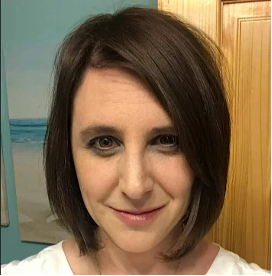
Dr. Jennifer Bundrick graduated with a BA from the University of Oklahoma with a major in Sociology/Criminology in May 2006. She completed medical school at the University of Oklahoma in May 2011, and she moved to Shreveport Louisiana for general surgery residency. After two years in the surgery program, she switched paths and completed general psychiatry residency in December 2016. Dr. Bundrick moved to Denver Colorado and completed a one-year forensic psychiatry fellowship with the University of Colorado Denver Medical School in December 2017. She has been in practice as a faculty member of the University of Colorado Denver Medical School since January 2018. She spent the first five years as a clinical psychiatrist contracted through the Colorado Department of Corrections. She transitioned to her current position performing remote forensic evaluations assessing readiness for release of not guilty by reason of insanity (NGRI) acquittees for the Colorado Mental Health Hospital in Pueblo. Dr. Bundrick has provided private forensic psychiatric consultation and evaluations since May 2018. She was an Associate Program Director for the University of Colorado Forensic Psychiatry Fellowship Program from July 2019 through June 2021, where she remains on faculty as a senior instructor.
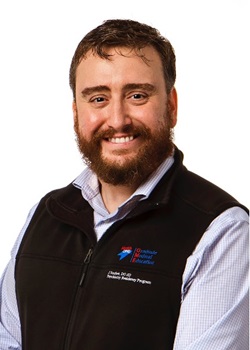
Joseph Alexander Sochet, DO, JD, graduated with BS in Computer Science from Rensselaer Polytechnic Institute (RPI), in Troy, New York. After working as an information technology contractor, salesman and computer programmer, he went on to complete his Juris Doctorate from Stetson University College of Law in Gulfport, Florida. Dr. Sochet started a solo practice in Sarasota, Florida, which focused primarily on marital and family law. He became frustrated with the imprecision of the law as a tool to help others. So, he decided on a career in medicine. Dr. Sochet attended Lake Erie College of Osteopathic Medicine in Bradenton, Florida and found his passion for psychiatry. After medical school, he became a founding resident at the HealthONE Psychiatry Residency Program at The Medical Center of Aurora, Behavioral Health and Wellness Campus in Aurora, Colorado. He served as the first, and only two-year, Outpatient Chief Resident in the program’s short history, and was instrumental in the founding of the HealthONE Outpatient Behavioral Health Clinic. Dr. Sochet went on to complete his fellowship in Forensic Psychiatry at the University of Colorado Anschutz School of Medicine (CU-Anschutz) Forensic Psychiatry Fellowship Program. Never shying away from a challenge, Dr. Sochet is now a Senior Instructor at CU- Anschutz, and presently works at the Colorado Mental Health Hospital in Fort Logan as one of the original psychiatrists on the Forensic Restoration Units. Dr. Sochet also serves patients on civil units. He is working to expand education and training at Fort Logan for medical students and future psychiatrists. Dr. Sochet has a passion for understanding, and incorporating, a whole person philosophy in his work as a psychiatrist, educator, and forensic psychiatrist.

Loandra Torres, PsyD, ABPP holds a doctoral degree in Forensic Psychology from Alliant International University (Los Angeles, CA). She is bilingual (Spanish and English) and has extensive clinical experience working in forensic settings, specializing in competency to proceed, mental state at the time of the offence, violence risk, and general psychological assessments. She has been with the Court Services Department, Office of Civil and Forensic Mental Health, since 2016 and is currently employed as the Director of Training. In this role, she supervises an active postdoctoral fellowship program and provides consultation/training for the department’s evaluators. She also runs a small private practice providing personal injury and other forensic psychological evaluations. Dr. Torres has a passion for producing high-quality work that maintains the standards of practice in the field of psychology.
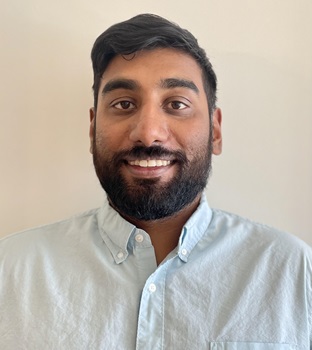 Hareesh Pillai, MD is a psychiatrist who is board certified in general adult and forensic psychiatry. He completed his psychiatry residency in Boston, MA at Tufts University in 2021. Following this, he moved to Denver, Colorado and began working at the Colorado Mental Health Institute in Pueblo. Dr. Pillai then took a one-year hiatus to complete his Forensic Psychiatry Fellowship at the University of Colorado in 2023. Dr. Pillai is currently a psychiatric supervisor at the Colorado Mental Health Hospital in Pueblo and a senior instructor at the University of Colorado Anschutz School of Medicine. Dr. Pillai’s current responsibilities include providing supervision to nurse practitioners on competency restoration units, completing forensic evaluations, and assisting in the training of forensic psychiatry fellows.
Hareesh Pillai, MD is a psychiatrist who is board certified in general adult and forensic psychiatry. He completed his psychiatry residency in Boston, MA at Tufts University in 2021. Following this, he moved to Denver, Colorado and began working at the Colorado Mental Health Institute in Pueblo. Dr. Pillai then took a one-year hiatus to complete his Forensic Psychiatry Fellowship at the University of Colorado in 2023. Dr. Pillai is currently a psychiatric supervisor at the Colorado Mental Health Hospital in Pueblo and a senior instructor at the University of Colorado Anschutz School of Medicine. Dr. Pillai’s current responsibilities include providing supervision to nurse practitioners on competency restoration units, completing forensic evaluations, and assisting in the training of forensic psychiatry fellows.
Psychiatry
CU Anschutz
Anschutz Health Sciences Building
1890 N Revere Ct
Suite 4003
Mail Stop F546
Aurora, CO 80045
303-724-4940
Campus Links
Patient Links
Faculty Links
CMS Login